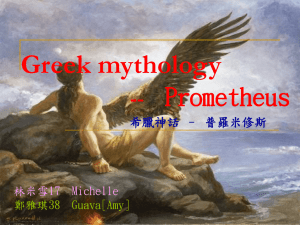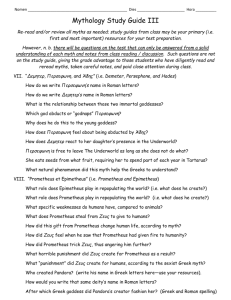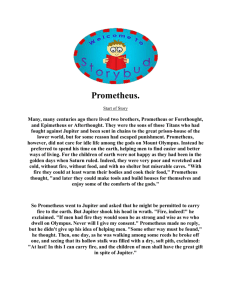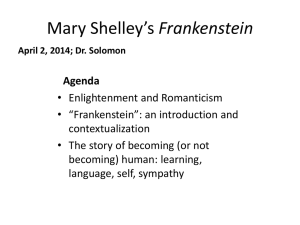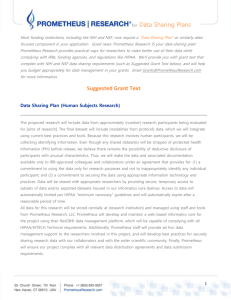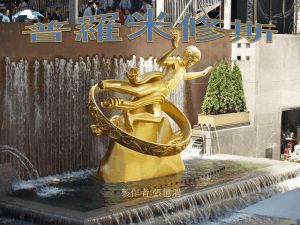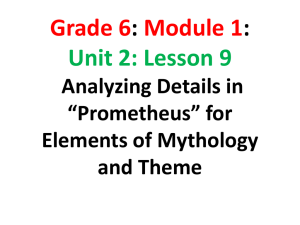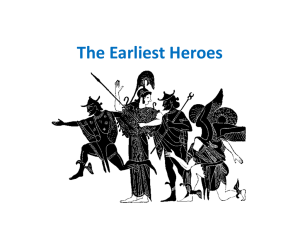Kyung Hwan Kim Topic: Prometheus writes: “The secrets of this
advertisement
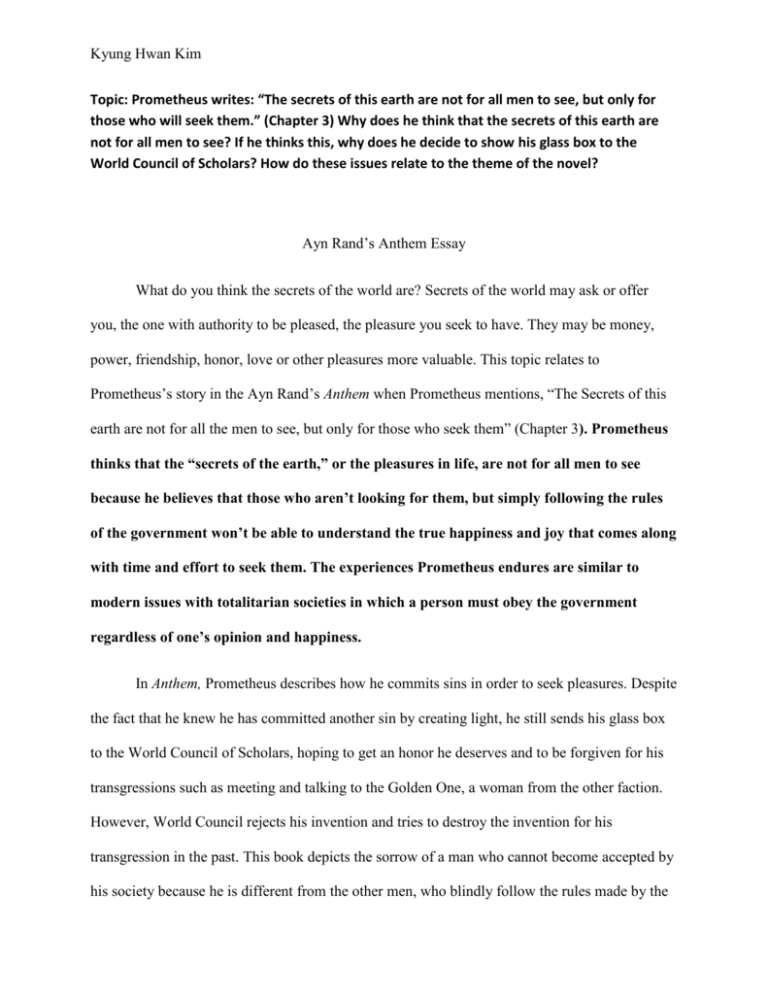
Kyung Hwan Kim Topic: Prometheus writes: “The secrets of this earth are not for all men to see, but only for those who will seek them.” (Chapter 3) Why does he think that the secrets of this earth are not for all men to see? If he thinks this, why does he decide to show his glass box to the World Council of Scholars? How do these issues relate to the theme of the novel? Ayn Rand’s Anthem Essay What do you think the secrets of the world are? Secrets of the world may ask or offer you, the one with authority to be pleased, the pleasure you seek to have. They may be money, power, friendship, honor, love or other pleasures more valuable. This topic relates to Prometheus’s story in the Ayn Rand’s Anthem when Prometheus mentions, “The Secrets of this earth are not for all the men to see, but only for those who seek them” (Chapter 3). Prometheus thinks that the “secrets of the earth,” or the pleasures in life, are not for all men to see because he believes that those who aren’t looking for them, but simply following the rules of the government won’t be able to understand the true happiness and joy that comes along with time and effort to seek them. The experiences Prometheus endures are similar to modern issues with totalitarian societies in which a person must obey the government regardless of one’s opinion and happiness. In Anthem, Prometheus describes how he commits sins in order to seek pleasures. Despite the fact that he knew he has committed another sin by creating light, he still sends his glass box to the World Council of Scholars, hoping to get an honor he deserves and to be forgiven for his transgressions such as meeting and talking to the Golden One, a woman from the other faction. However, World Council rejects his invention and tries to destroy the invention for his transgression in the past. This book depicts the sorrow of a man who cannot become accepted by his society because he is different from the other men, who blindly follow the rules made by the Kyung Hwan Kim totalitarian leadership. In response to the hopeless dictatorship, Prometheus alludes that “secrets of this earth” are not for everyone to see because he knows that those who do not try, but rather follow what the government forces them to do, won’t find any pleasures, implying this complacency is wrong. By showing his glass box to the scholars, Prometheus illustrates that he does not truly believe that the “secrets of this earth” are not for all the men to see. Rather, he understands that the rules enforced the government aim to restrict people's ability to discovering these secrets. Prometheus’s vigorous internal struggle is depicted when he remarks, “What – even if we have to burn for it like the Saint of the pyre – what is the Unspeakable Word?” (2.57). Prometheus’s conflict is depicted when he mentions the “Unspeakable Word,” implying that he is not even being able to speak freely. Prometheus then alludes that Saint of the Pyre, the man who spoke of freedom, caused Prometheus to fear being burned by others who don’t seek the secrets of this earth. Even though he knows that he would be causing another transgression in doing this, Prometheus holds onto his hope to get acknowledged for making the glass box by displaying it to the scholars, the men of science, men with greatness in the World Council of Scholars. His intense anger is elucidated when he speaks, “For this wire is a part of our body, as a vein torn from us, glowing with our blood. Are we proud of this thread of metal, or of our hands which made it, or are there a line to divide these two?” (5.10). The term “wire” defines not only that he has lost the desire to make people conventionally utilize the glass box, but also that he will keep the glass box as part of his precious memory. He displays the glass box to show the scholars not just his great discovery for the good of society, but also his pride to create and invent as an admirer of men of science. Consequently, Prometheus’s suppression elucidates how a person living in a totalitarian society is restricted. Kyung Hwan Kim Prometheus lives in a typical totalitarian society where his freedom is restricted. Through his meeting with the Golden One, he undergoes forbidden love between different factions. Prometheus shows his love for the Golden One when he states:“For men are forbidden to take notice of women, and women are forbidden to take notice of men. But we think of among women, they whose name is Liberty 5-3000 and we think of no others (2.2).” The Golden One is nickname for the Liberty 5-3000 created by Prometheus, since her hair was as bright as gold. Prometheus recognizes his love for the Golden One, who did not accept her secret lover until the end, for not wanting to break the rules created by society. As the Golden One rejects Prometheus’s love because of his faction, Prometheus realizes that the society has restricted every aspect of his life. This is also true in many current societies like parts of India, where people can only socialize with people from the same faction or class; people do not have free will under control of the law and dictatorial leadership. Anthem depicts many current issues such as how totalitarian society dictating people’s lives. Even though Prometheus undergoes hardships living in the totalitarian society, he keeps his hope alive, understanding that true “secrets of this earth” are not instructed by the government, but found from within. Hoping to be honored and not punished for his transgression by presenting the glass box, Prometheus instead gets chased by the policemen who call him a sinner. Prometheus’s actions illustrate the theme of novel, try one’s best to seek for one’s goal and dream regardless of what the circumstances are.
